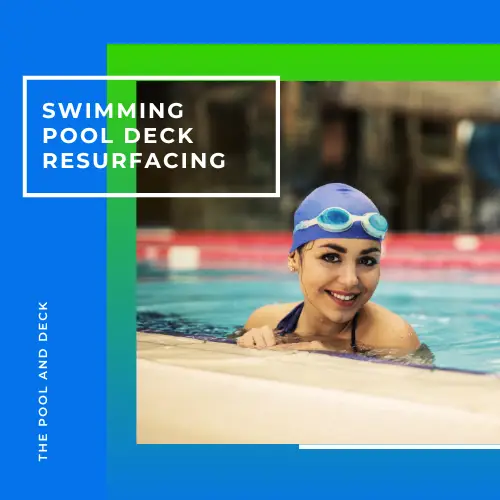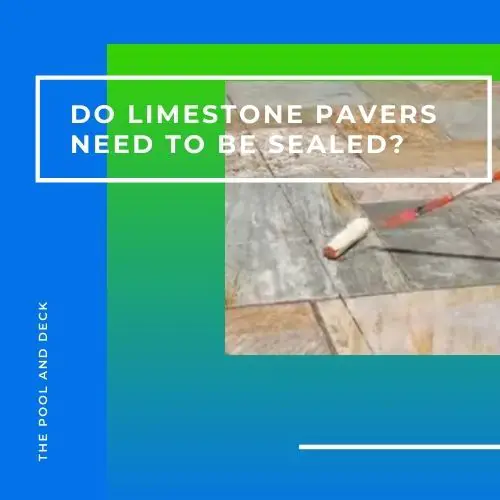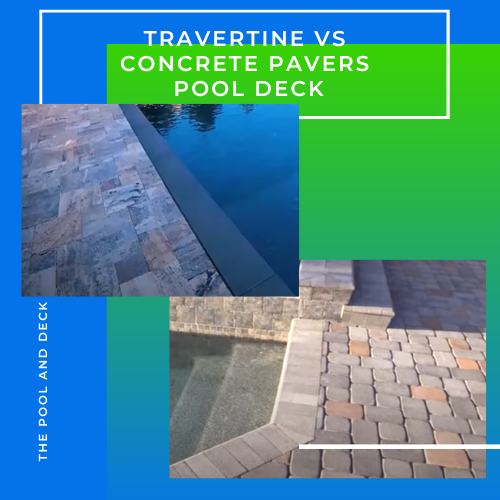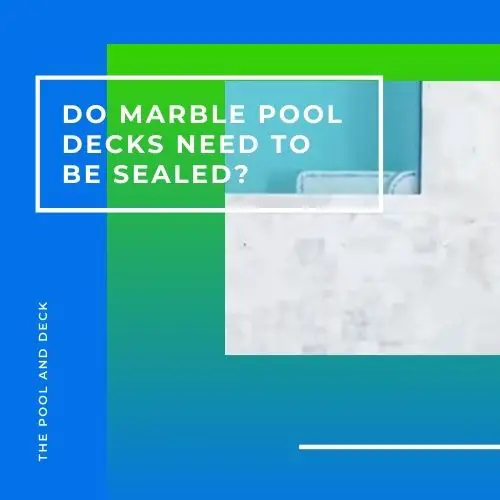Pool Deck Pavers Pros and Cons: What is the Truth?
Table of Contents
Are Pavers Good for Pool Decks?
Pavers are an option when it comes to pool decks. But what are pool deck pavers pros and cons? This post lays it out for you so that you can make an informed decision.
Pavers are certainly a good option for pool decks. Pavers are durable, need little maintenance, and are slip resistant. Installing pavers on a pool deck is relatively simple, though a laborious DIY project. Pavers can be a cost effective option for pool decks.
Before you decide in favor of using pavers for your pool deck, you need to know the pool deck pavers pros and cons, in some detail. Read on as I have detailed information on it.
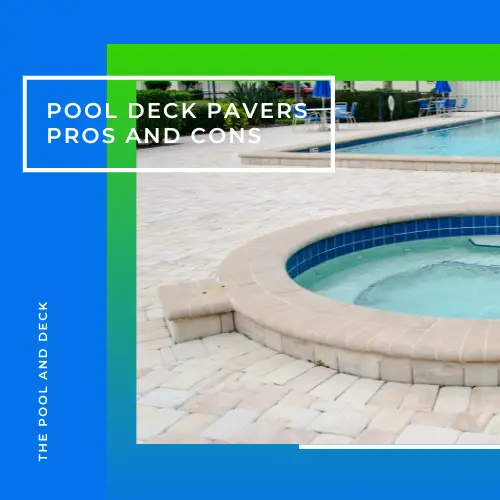
Advantages of Using Pool Deck Pavers
The key advantages of using pool deck pavers are:
Durability – Resistance to Wear & Tear
Pool deck pavers are durable and will last many years with little maintenance. Pavers for pool decks are typically made from high-quality materials, such as concrete, stone, or brick, which are known for their durability and longevity.
Pool deck pavers are, therefore, resistant to wear & tear from foot traffic. They can also withstand exposure to pool chemicals and changing weather conditions.
Designed for Drainage
Installation of pool deck pavers requires that there are gaps between individual pavers. The gaps allow for good drainage and prevent water from staying on the pavers surface for long.
During winters, water build up on a pool deck can be damaging. Water may seep into the paver material and damage it from within due to freeze-thaw cycles.
High Slip Resistance
It is absolutely natural for pool decks to be wet, especially with kids running around and having fun. Now, many pool deck materials look great but get slippery when wet.
Pool decks built with pavers tend to be less slippery because of water drainage through the joints. Pool deck pavers often come with textured finishes which provide additional slip resistance.
Pool decks, with poor drainage can also be a slip hazard during the cold season. Water can condense and freeze on the deck surface forming an invisible, slippery film of ice.
Easy to Install – Anyone can do it!
Installing pavers on a pool deck is simple enough for you to treat it as a weekend DIY project. The pavers come in standard sizes with finished surfaces. An individual paver is not too heavy.
Once you have prepared the sand bed, installation is as simple as completing a child’s jigsaw puzzle. You can have a stunning pool deck without the cost and trouble of dealing with contractors.
Low Maintenance, if done right
Pavers are also low maintenance, requiring only periodic cleaning and sealing to keep them looking their best. You can also reduce maintenance needs by using geotextile fabric under the pavers and polymeric sand for the joints. Both methods prevent weed growth.
Aesthetics – Customized Great Looks
Pavers come in a range of materials from expensive natural stone to functional concrete and let you create the pool deck of your dreams.
Pavers come in a wide range of colors, textures, and shapes, allowing for customized designs and a unique look. You can easily create a pool deck that complements the surrounding landscape and architecture.
Use of pavers with different shapes, sizes and textures can add visual interest and a dynamic look to your pool deck. Use your creativity to break up a large surface area and add a decorative touch to your pool deck and backyard.
Natural stone pavers offer a classic and earthy look to enhance the aesthetic appeal of a pool deck. This is especially true for pavers made from stone such as travertine or slate, which have a natural and organic look & feel.
Disadvantages of Using Pool Deck Pavers:
Pool deck pavers come with a few disadvantages too.
High Cost – Does it Meet your Budget?
Compared to some other options such as a stamped concrete or a composite wood deck, pool deck pavers are certainly an expensive proposition.
The cost can vary significantly depending on the paver material you choose. However, in most cases pavers will be the more expensive option.
Uneven Deck – Something to Watch out for!
A pool deck made from pavers runs the risk of becoming uneven after a few seasons. As each paver is an individual unit, it can move independent of the other pavers. Before you know it, the pool deck may no longer be level.
This drawback can be minimized by professional installation. The materials and the technique used in preparing the base is extremely critical. The soil condition around the pool is also an important factor.
Paver Joints – Need Regular Care
Paver joints are intrinsic to paver installation. While joints are helpful in drainage they can result in some unwanted problems.
Paver joints are quite prone to weed growth and ant infestations. This may require additional maintenance and use of chemicals to keep your pool deck looking its best.
Paver joints also need to be cleaned and re-sealed periodically, which can add to the overall cost of maintaining your pool deck.
Thank you very much for reading the post. I do hope you found it informative and helpful.

